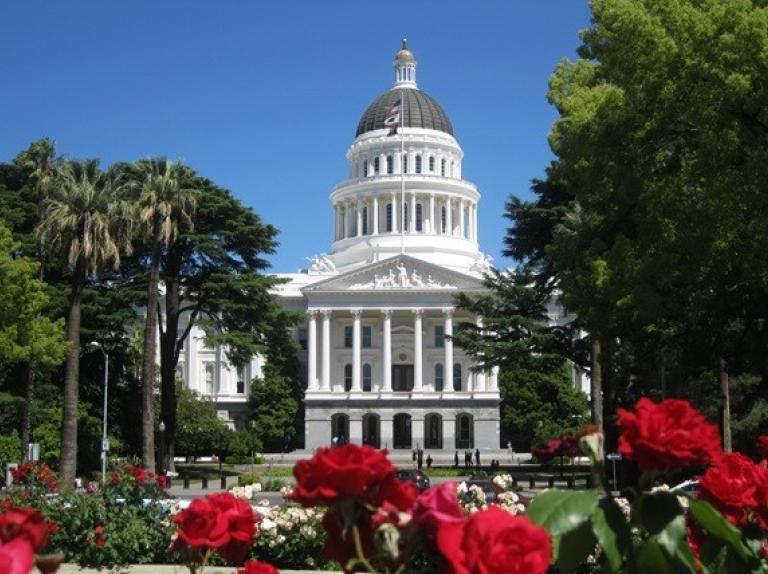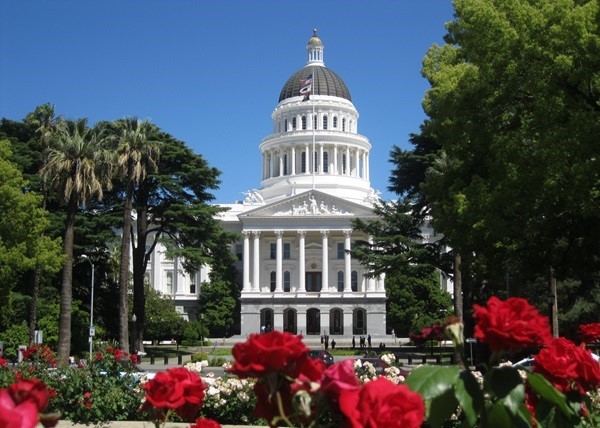
The first step toward change is awareness, the second is acceptance. But to move forward you also need to accept that failure is not the opposite of success; it is part of success.
Albert Einstein was quoted as saying, "Insanity is doing the same thing over and over again and expecting different results." I have often thought of that quote as I have watched the infamous California travel ban go from targeting one state, North Carolina, seven years ago to targeting a growing list that was ultimately 24 states - Alabama, Arizona, Arkansas, Florida, Georgia, Idaho, Indiana, Iowa, Kansas, Kentucky, Louisiana, Mississippi, Montana, North Carolina, North Dakota, Ohio, Oklahoma, South Carolina, South Dakota, Tennessee, Texas, Utah, West Virginia, and Wyoming. But the insanity has stopped. Today the count is zero as the ban has finally been repealed effective immediately.

As a refresher, the travel ban was on state funded or sponsored travel and applied to state agencies, departments, boards, authorities, and commissions, including any agency, department, board, authority, or commission of the University of California, the Board of Regents of the University of California, and the California State University. And the targets of the ban were any states that the California Attorney General determined had enacted a law that (1) had the effect of nullifying or repealing existing state or local protections against discrimination on the basis of sexual orientation, gender identity, or gender expression; (2) authorized or required discrimination against same-sex couples or their families or on the basis of sexual orientation, gender identity, or gender expression; or (3) created an exception to anti-discrimination laws to permit discrimination against same-sex couples or their families or on the basis of sexual orientation, gender identity, or gender expression.
Destinations International has been a staunch opponent of travel boycotts or bans in any form (other than those that exist because of the clear and present danger to the safety of travelers) and no matter how well-intentioned the call for them is. And while there is a temptation to lapse into a victory lap complete with the proper amount of gloating and self-satisfaction as some like this writer has done, I would choose to take this time to examine some key elements in the repeal.
The second quote that always comes to mind when thinking about the ban and more specifically, how to oppose the ban, is attributed to Nathaniel Branden (Canadian American psychotherapist and writer known for his work in the psychology of self-esteem). He said, "The first step toward change is awareness. The second step is acceptance."
The leaders in California had to become aware that if they were serious about enacting change, the travel ban was not working. The evidence was overwhelming. The list growing to 24 is a glaring sign of failure. Just as glaring is the sheer number of bills that the California Ban sought to stop that have been introduced this year alone. On May 23, 2023, the Human Rights Campaign reported, “Over 520 anti-LGBTQ+ bills have been introduced in state legislatures, a record; over 220 bills specifically target transgender and non-binary people, also a record; and a record 70 anti-LGBTQ laws have been enacted so far this year.”
Destinations International reached out on several occasions over the last seven years to have “off the record” conversations with the staff of key political leaders at various times, trying to judge the willingness or appetite to consider a repeal. While we detected a growing awareness, we never saw any signs of acceptance. Frankly it was very frustrating. Elected officials were still traveling to those states but used campaign funds to cover the costs thus eliminating the proposed effect they were advocating for.
Sports teams also continued to travel by shifting funds from college boosters, an option not really available for other academics and scholars. The American Historical Association pointed out that the ban “restricts the work of graduate students and early career scholars, preventing them from completing research that would actually showcase the significance of LGBTQ life, among other pressing subjects, in targeted states.” San Jose State University professors Keenan Norris and A. Lamont Williams pointed out that “Many Black scholars in California have experienced limitations related to collaborating with fellow scholars and colleagues studying the South, where much of their research is rooted.”
The only thing we knew was that if acceptance came, it would have to come from within California. Outside pressure would not work. It was that kind of thinking that led to the ban in the first place, and we can all see how well that worked out.
This year we have seen what we have been waiting for. Both awareness and acceptance of the travel ban's failure to achieve its goal. Senate President pro Tempore Toni G. Atkins (D-San Diego) introduced legislation that would repeal California's travel ban to other states and instead create a program to promote acceptance of the LGBTQ+ community. The bill would instead create a donation-driven fund that could be used to create inclusive messages, discourage discrimination, and help members of the LGBTQ+ community feel less isolated. Called the BRIDGE Project - Building and Reinforcing Inclusive, Diverse, Gender-Supportive Equality - the legislation would help California promote compassion and build bridges to unite and unify communities.

Pro Tempore Atkins has long been a champion for civil rights, gender equality, and the LGBTQ+ community. She authored landmark legislation to advance equality for transgender Californians by ensuring they can have their true gender marker listed on driver's licenses, birth certificates, and death certificates. She led the charge to expand HIV/AIDS treatment and prevention services and secured funding to house homeless LGBTQ+ youth.
When she introduced the bill, Atkins spoke about her personal experience as a child as the inspiration for the new concept. She said, “When I was a teenager growing up in rural Virginia, the idea of being accepted as a lesbian was a foreign concept. Times have changed, but for so many in the LGBTQ+ community, the feelings of isolation and fear remain. Lifting the travel ban and putting a program in its place that would infuse inclusive, non-partisan messages in other states is a way that California can help build a bridge of inclusion and acceptance. At a time when LGBTQ+ rights and protections are being rescinded, and the very words we use are being weaponized, putting understanding and kindness at the forefront is more important than ever. The goal here is to speak to people’s hearts and open minds. That’s a pursuit that would have made teen Toni – that southwestern Virginia girl afraid to be herself back then – so proud.
When the bill passed its first hurdle, she pointed out that “The original travel ban was well intentioned and was successful in bringing attention to the discriminatory practices in other states at the time. As years passed, however, it has had the unintended effect of hampering Californians from being able to conduct research, business, and engage with all people from those states.” When the bill passed the legislature and was sent to the Governor, she added that “the BRIDGE Project would be a conduit of hope and compassion, and encourage others to open their hearts and minds to be more accepting and inclusive. It’s within all of us to be that light.”

This brings me to the latest quote that this whole episode makes me think of. Arianna Huffington (founder and CEO of Thrive Global, the founder of The Huffington Post, and the author of 15 books) once said, "Failure is not the opposite of success; it is part of success." The California travel ban was a bad idea to begin with and a failure over time. We at Destinations International commend Senate President pro Tempore Toni G. Atkins for having the awareness to see that, the courage to accept that, and the belief in the original goal to see that failure need not be the end, but part of the process in the journey toward success. And to do that, California would need a new strategy based on engaging others, not avoiding them. Which, by the way, is an argument for travel.


